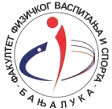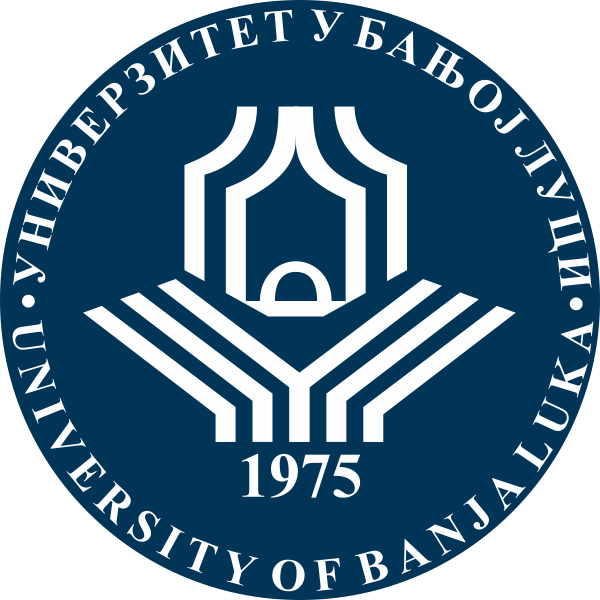SportLogia
Vol. 7, Issue 2, Decembar 2011.
GENESIS OF HEALTH - ORIENTED PHYSICAL CULTURE AT SCHOOLS OF RUSSIA (THE END OF THE XIX CENTURY - THE 80S OF THE XX CENTURY)
Vladimir Irhin1 and Irina Irhina1
1State National Research University “BelSU”, Belgorod, Russia
ORGINAL SCIENTIFIC PAPER
10.5550/sgia.110702.en169I
COBISS.BH-ID: 2433560
UDC: 371.3.214.11:614(470)
Summary
FULL TEXT (.pdf) free of charge
This work is devoted to genesis of ideas of Russian schoolchildren health maintenance, promotion and formation by physical training means within the period from the end of the XIX century till the 80s of the XX century. At the beginning of the XX century one of the perspective directions in development of the Russian physical training theory was scientific investigation of schoolchildren’s health improvement by physical culture means. At the end of the XIX century in the Russian physical culture theory there were already marked out two independent, opposite in certain degree approaches - educational and hygienic. At the beginning of the XX century hygienic and educational tasks of physical education were recognized parity and compulsory. At the pre-revolutionary period of the health–oriented physical culture development at Russian schools physical training lesson was included into educational content as a compulsory subject at advanced schools. The aim of rising healthy generation caused establishment of innovative schools already in the first years of Soviet government. Schoolchildren’s military-physical training was one of the central points in educational process during the Second World War. In the post-war period the scientists concentrated their attention on the war consequences study. At the end of 80s there was accumulated significant scientific and experimental works on health-improving measures for pupils. It has led to appearance and further promotion of health–oriented vector of physical education and pupils’ health protection development.
Key words: health – diabetes mellitus; physical activity; physical education; special needs students; teacher responsibility.
References:
Adrianova, A. E. (1941). Воспитание санитарно-гигиенических навыков у учащихся I класса [Education of pupils’ sanitary-and-hygienic skills]. Moscow, Russia: State Scientific Research Institute of RSFSR schools.
Antropova, M. V. (1968). Работоспособность учащихся и её динамика в процессе учебной и трудовой деятельности [Pupils’ efficiency and its dynamics in the course of educational and labour activity]. Moscow, Russia: [n.p.].
Antropova, M. V. (1985). Физиолого-гигиенические рекомендации по нормализации учебной нагрузки учащихся 7-10 классов [Physiological hygienic recommendations about normalization of pupils’ academic load in 7-10 classes]. Moscow, Russia: APN of USSR.
Basov, V. N. (1931). Общие основы педологии [General foundations of pedology] (2nd ed.). Moscow, Russia: GIZ.
Bekaryukov, D. D. (1914). Основные начала школьной гигиены [Foundations of school hygiene]. Moscow, Russia: [n.p.].
Bekhterev, V. M. (1928). Мозг и его деятельность [Brain and its activity]. Moscow, Russia: [n.p.].
Berman, F. Yu., & Milman, I. I. (1935). Материалы для ведения уроков по охране здоровья (санчасов) в I и II классах начальной школы: Сборник методических разработок [Materials for lessons on health protection (sanitary hours) in I and II classes of elementary school: Collection of methodical workings out]. Moscow, Russia: Institute of sanitary culture.
Blonsky, P. P. (1930). Педология [Pedology]. Moscow, Russia: Educator.
Chertok, O. I., Milman, I. I., & Zabludovsky, P. E. (1940). Предупреждение заразных болезней в школе: Сборник методических материалов по санпросветработе [Prevention of infectious illnesses at school: Collection of methodical workings out on sanitary education work]. Moscow, Russia: Institute of sanitary education of USSR.
Dementev, E. M. (1892). Гимнастика и игры [Gymnastics and games]. Moscow, Russia: [n.p.].
Filitis, N. S. (1916). Подвижные игры детских садов [Outdoor games of kindergartens]. Moscow, Russia: [n.p.].
Gerd, I. Ya. (1912). Сборник игр и полезных занятий для всех возрастов [Collection of games and useful occupations for all ages]. St. Petersburg, Russia: SPB.
Gorinevsky, V. V. (1900). О закаливании человеческого организма, как средстве воспитания [Hardening of human body as upbringing means]. Moscow, Russia: [n.p.].
Gorinevsky, V. V. (1913). Физическое образование [Physical education]. St. Petersburg, Russia: SPB.
Gorinevsky, V. V. (1916). Физические упражнения, соответствующие данному возрасту [Physical exercises corresponding to age]. St. Petersburg, Russia: SPB.
Gorinevsky, V. V. (1927). Культура тела [Culture of body]. Moscow, Russia: [n.p.].
Gorinevsky, V. V. (1951). Избранные труды [Slected works]. Moscow, Russia: [n.p.].
Grombach, S. M. (1959). Гигиена учебных занятий в школе [Hygiene of lessons at school]. Moscow, Russia: Medicine.
Grombach, S. M. (1988). Школа и психическое здоровье учащихся [School and pupils’ mental health]. Moscow, Russia: Medicine.
Ignatev, V. E. (1912). Физическое развитие детей в связи с гигиеной [Children's physical developmnet in connestion with hygiene]. Moscow, Russia: [n.p.].
Iordansky, N. I. (1927). Школоведение: Руководство для массового учителя [School studying: Teachers guidance]. Moscow, Russia: Educator.
Irhin, V. N. (2002). Теория и практика отечественной школы здоровья [Theory and Practice of domestic school of health]. Barnaul, Russia: Azbuka.
Ivanov, A. G. (1969). Опытно-показательные школы Наркомпроса РСФСР (1918-1937) [Experimental-demonstration schools of Narkompros of RSFSR (1918—1937)]. Yaroslavl, Russia: [n.p.].
Kashchenko, V. P. (1922). Дефективные дети в школе [Defective children and school]. Moscow, Russia: [n.p.].
Kapterev, P. F. (1914). Новая русская педагогика, её главнейшие идеи, направления и деятели [New Russian pedagogy, its major ideas, directions and personalities] (2nd ed.). St. Petersburg, Russia: SPB.
Kolesov, D. E., & Chripkova, A. G. (1982). Мальчик - подросток - юноша: Пособие для учителей [Boy - Teenager - Young man: Teachers’ book]. Moscow, Russia: Enlightenment.
Kuznetsova, I. (1998). »Школы здоровья« в зоне российского Чернобыля [»Health schools« in the zone of Russian Chernobyl]. Народное образование, 9−10, 229−230.
Lazursky, A. F. (1913). Школьные характеристики [School characteristics] (2nd ed.). St. Petersburg, Russia: SPB.
Lesgaft, P. F. (1898). Значение физического образования в семье и школе [Importance of physical culture in the family and at school]. Русская школа, 9, 75−91.
Lyach, V. I., Kofman, L. V., & Meykson, G. V. (1996). Комплексная программа физического воспитания учащихся [Complex program of pupils’ physical training]. Moscow, Russia: [n.p.].
Milman, I. I. (1940). Беседы по охране здоровья в III кл. начальной школы [Discussion of health protection in 3rd form of elementary school]. Moscow, Russia: Institute of sanitary education of USSR.
Milman, I. I. (1966). Гигиеническое воспитание и обучение в начальной школе [Hygienic upbringing and training at elementary school]. Moscow, Russia: [n.p.].
Ministry of Education. (1920). Положение о летней школе [Regulation about summer school]. Moscow, Russia.
Nechaev, A. P. (1899). Об умственном утомлении [About intellectual exhaustion]. Русский начальный учитель, 1.
Nimen, L. B. (1941). Опыт санитарно-просветительской работы в 113 школе Советского района г. Москвы [Experience of sanitary-educational work at Moscow school № 113]. Начальная школа, 8.
Nimen, L. B. (1945). Воспитание гигиенических навыков в начальной школе [Education of hygienic skills at elementary school]. Начальная школа, 6.
Pokrovsky, E. A. (1983). Детские игры и гимнастика в отношении воспитания и здоровья молодежи [Children’s games and gymnastics in relation to upbringing and youth health]. Moscow, Russia: [n.p.].
Ravkin, Z. I. (1988). Очерки истории школы и педагогической мысли народов СССР (1941-1961) [Essays of school history and pedagogical thought of the people of the USSR (1941-1961)]. Moscow, Russia: Pedagogy.
Положение о единой трудовой школе [Regulation about common labour school]. (1918). Moscow, Russia: [n.p.].
Rubinshteyn, M. M. (1920). Очерки педагогической психологии в связи с общей педагогикой [Essays of pedagogical psychology in connection with general pedagogics] (4th ed.). Moscow, Russia: [n.p.].
Semashko, N. A. (1947). Очерки по теории организации здравоохранения [Essays under theory of public health services organization]. [s.l.]: [n.p.].
Sharipova, D. D. (1990) Научные основы гигиенического воспитания школьников [Scientific bases of pupils’ hygienic education]. (Upblished doctoral disertation). University of Tashkent.
Sovetov, V. G. (1956). Охрана здоровья детей и подростков во время Великой Отечественной войны [Health protection of children and teenagers during Great Patriotic War]. Гигиена и санитария, 5−6, 45−48.
Tseytlin, A. G. (1963). Физическое развитие детей и подростков [Physical development of children and teenagers]. Moscow, Russia: Medgiz.Vygotsky, L. S. (1931). Развитие высших психических функций [Development of higher mental functions]. Moscow, Russia: [n.p.].




